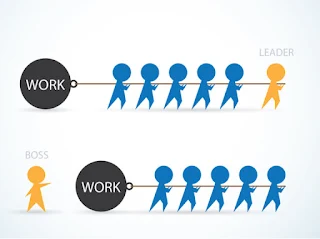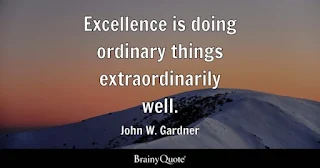Leadership and Management
Introduction
Many pharmacists are not drawn to leadership positions due to the heavy workload and the perceived lack of training and support, which necessitates sacrificing direct patient care.
- However, if these vacant leadership positions are filled by non-pharmacists, then the decisions may not be in the best interest of patients and pharmacy staffs.
Furthermore, poor management skills lead to decreases in job satisfaction, engagement, productivity and workload among staff and an increase in staff turnover.
Leadership
Broadly speaking, there are two types of people in the world: leaders and followers.
- There is no disgrace in being a follower, but there is no credit in remaining one indefinitely.
- Most great leaders began as followers, especially those intelligent ones who seized the opportunity to learn from their leaders.
Types of leadership
- Leadership by Consent: The most effective type, relying on follower trust and cooperation.
- Leadership by Force: Ultimately unsustainable, as people will not follow forced leadership indefinitely.
Hence, be a leader by being influential (i.e. having followers who have the freedom to choose not to follow), not by your position or power!
NOTE: Keeping promises, including little ones, is essential to trustful relationships.
Major Attributes of Leadership
Self-confidence and courage
- A leader needs to be decisive and sure of themselves.
Self-control
- The ability of manage oneself is essential to manage others.
Sense of justice
- Fairness is key to earning and keeping respect from followers.
Decision-making
- Leaders need to be clear and unwavering in their choices.
Planning
- Successful leadership requires a well-defined plan with clear direction.
Hard work and dedication
- A leader should be willing to go above and beyond his followers.
Positive personality
- People are more likely to follow someone they respect and admire.
Empathy and understanding
- Leaders should be able to connect with followers (understand them and their problems).
Attention to detail
- Understanding the intricacies of the situation is crucial.
Responsibility
- A leader takes ownership of mistakes and shortcomings.
Cooperation
- Leaders need to foster teamwork and collaboration.
Causes of Failure in Leadership
Inability to organize details
- A true leader is never too busy to handle important tasks. Admitting you are "too busy" shows inefficiency. Leaders should be on top of things, but that also includes delegating to trusted helpers.
Unwillingness to serve
- Truly great leaders are willing, when necessary, to perform any task they would ask of others.
Focus on knowledge over action
- Simply possessing knowledge is not enough; leaders need to apply it effectively.
Fear of followers' competition
- A strong leader empowers and develops their followers to take on some of their tasks. This lets the leader focus on more things at once.
Lack of imagination
- Without imagination, the leader is incapable of meeting emergencies, and of creating plans by which to guide his followers efficiently.
Selfishness
- Taking credit for follower achievements breeds resentment.
- People are more motivated by praise than just money.
Disloyalty
- A leader who breaks trust cannot maintain leadership
Overemphasis on authority
- Leadership should inspire, not rely on fear tactics.
Title Dependence
- A true leader earns respect through actions, not just titles.
Distributive Leadership
Traditional structures of a stable organization separate roles into leaders (decide), managers (direct), and producers (do).
- However, fostering an environment where individuals can embody all three roles (decider, director, and doer) to varying degrees can indeed strengthen an organization.
- This distributive leadership approach encourages shared ownership, fosters innovation, and builds resilience in the face of challenges.
- However, it is crucial to balance individual empowerment with clear frameworks and accountability to ensure efficient decision-making and effective execution.
Leading involves deciding what ought to be done or determining where an organization should go.
- Skills needed: Visioning, communication, honesty and integrity, goal setting and related strategizing, continuous learning, courage and calmness in crises, humility, tolerance for ambiguity and creativity
Managing focuses on directing who is doing what when.
- Skills needed: Communication, delegation of authority, planning, resource acquisition and allocation, and monitoring.
Producing involves doing what has been decided as a result of leading and what is being directed via managing.
- Skills needed: Clinical and technical competence, focus, persistence and teamwork.
Leading From Vision to Action
Begin with the end in mind.
- Engage and organize the stakeholders to achieve common goals.
- Estimate what "costs" and "benefits" might be incurred.
Plan.
- Create standards of practice.
- Adopting a holistic approach - Our frustrating failure frequently follows from lack of relevance of the resolutions and goals to our overall life.
- Emphasize practicality as well as quality - "we do it right the first time, every time".
- Put yourself "in their shoes". Have sensitivity and appropriate timing when addressing problems, issues or change events.
Delegate appropriate parts of tasks to other capable individuals.
- Lead by example - Inspire excellence and provide clarity through a vision.
- A good leader will take the time to learn out about the members of his or her team (strengths and weaknesses).
- Build and empower the team.
Stay in touch - Communicate with all employees at all levels.
- Listen, consider, act, provide feedback and give credit to those who deserve it.
- Leaders show respect for staff members, but bosses instil fear.
- Continually guide and encourage the staff toward achieving goals within limits of the abilities and resources available.
- Recognition goes a long way in the middle of a chaotic work day.
NOTE: Rather than seeking to find blame for failures in the pharmacy, seek to find solutions.
Reflection immediately after an event or activity leads to little improvement here and a little there and, over time, to big improvements.
- The road to success is not doing one thing 100% better, but doing 100 things 1% better.
Leading with Humanity in Tough Times
In the darkest time, strong leadership becomes even more critical.
- Leaders should prioritize the well-being of their subordinates, not threaten or manipulate them like robots expected to produce maximum output with zero-tolerance policy.
- While it may seem tempting to squeeze more work out of your staff in the short term, this approach is unsustainable and will ultimately lead to burnout.
True leadership is not about dictatorship, making rash decisions, or ignoring the root cause of the problems.
- Often, the ground-floor staffs, who are closest to the day-to-day realities, have valuable insights on the practicality of proposed solutions, even before implementation.
- Fostering an environment of open communication and collaboration allows for better problem-solving that truly address the needs of the organization and its people.
Similar to a healthy relationship, human beings thrive when they have a voice and the opportunity to contribute to positive change.
- Leaders may envision the greater good for the organization, but it is the staff, the soldiers on the ground, who make it happen. Staff, as individuals, also has needs and aspirations too.
- Remember, pretending to be a good boss who listens to suggestions and promises consideration, while actually showing no real interest, erodes trust among staff quickly.
- When staffs wait and face repeated disappointment, they will leave for their well-being, even if you offer what they initially desired.
Summary
Leadership is not about working harder or technical skills, but is about managing people.
- Building relationships
- Leaders need to be able to connect with people on a personal level and build trust.
- This is done by listening to others, being empathic, and showing genuine interest in their lives.
- Achieving group results
- Leaders need to be able to motivate and inspire their team to work together towards a common goal.
- This requires involves skills like listening, giving and receiving feedbacks, delegating tasks, handling conflict, planning and big picture thinking.
- Grooming others
- Leaders need to be able to identify and develop talent within their team.
- This is done by providing by mentorship, coaching and training.
A good leader should also have good stress management skills to stay calm under pressure, make sound decisions and motivate team members.




Comments
Post a Comment